




When it comes to keeping whites bright and clean, many people turn to various laundry products and techniques. One popular belief is that adding aspirin to the washing machine can improve the whitening effect on whites. But is there any truth to this claim?
Aspirin, also known as acetylsalicylic acid, is commonly used as a pain reliever and anti-inflammatory medication. However, some individuals believe that it can also help to whiten clothes when added to the wash. The theory is that the acid in aspirin can help to break down stains and brighten fabrics.
Proponents of adding aspirin to the washing machine claim that it can be particularly effective in removing yellowing or dinginess from white fabrics. They suggest dissolving a few aspirin tablets in water and then adding the mixture to the wash cycle along with the detergent. However, is there any scientific evidence to support these claims?
While there is limited research on the topic, some experts believe that the acidic properties of aspirin could potentially help to remove stains and brighten whites. However, others argue that the amount of aspirin used in a typical laundry load is unlikely to have a significant impact. Additionally, adding aspirin to the washing machine may not be suitable for all types of fabrics or laundry detergents, as it could potentially cause damage or affect the effectiveness of the cleaning products.
In conclusion, the effectiveness of adding aspirin to the washing machine for improving the whitening effect on whites is still a subject of debate. While some individuals swear by it, others are skeptical. If you’re considering trying this technique, it’s important to do so with caution and perform a patch test on a small, inconspicuous area before applying it to your entire load of laundry.
Does Adding Aspirin Improve Whitening Effect on Whites?
Many people strive for bright, white and clean laundry, especially when it comes to their whites. There are various methods and products available to help achieve this, and one common suggestion is to add aspirin to the washing machine. But does adding aspirin really improve the whitening effect on whites?
The Science Behind Aspirin and Whitening
Aspirin contains acetylsalicylic acid (ASA), which is believed to have certain properties that can help remove stains and improve the appearance of white clothes. It is thought that ASA acts as a bleaching agent and can enhance the effectiveness of regular laundry detergent.
When aspirin is dissolved in water, it releases salicylic acid, a compound known for its cleaning and exfoliating properties. This chemical reaction may contribute to the ability of aspirin to remove dirt and stains from fabrics.
Evidence and Recommendations
While many people swear by the effectiveness of adding aspirin to their laundry, there is limited scientific evidence to support these claims. Most studies on the topic have focused on the use of aspirin as a stain remover for specific types of stains, rather than its overall whitening effects on whites.
It is important to note that aspirin is not specifically designed for use as a laundry additive and may not be suitable for all fabrics. Some fabrics may be sensitive to the acidic properties of aspirin, which can lead to discoloration or damage. Therefore, it is recommended to perform a patch test on a small, inconspicuous area of the fabric before using aspirin on a larger scale.
Alternative Whitening Methods
If you are looking for alternative methods to whiten your whites, there are several tried and tested options available:
- Bleach: Chlorine bleach or oxygen bleach can be effective for whitening whites. However, it is important to follow the instructions on the bleach packaging and avoid using too much, as it can damage fabrics.
- Lemon juice: The natural acidity of lemon juice can help brighten white clothes. Simply mix lemon juice with water and soak your whites before washing as usual.
- White vinegar: Adding a small amount of white vinegar to your laundry can help remove stains and brighten whites. Simply add 1/2 cup of white vinegar to the rinse cycle.
- Baking soda: Baking soda is another natural option that can help whiten whites. Add 1/2 cup of baking soda to your detergent during the wash cycle.
These alternative methods have been proven effective by many individuals and are generally considered safer options for whitening whites compared to aspirin.
Conclusion
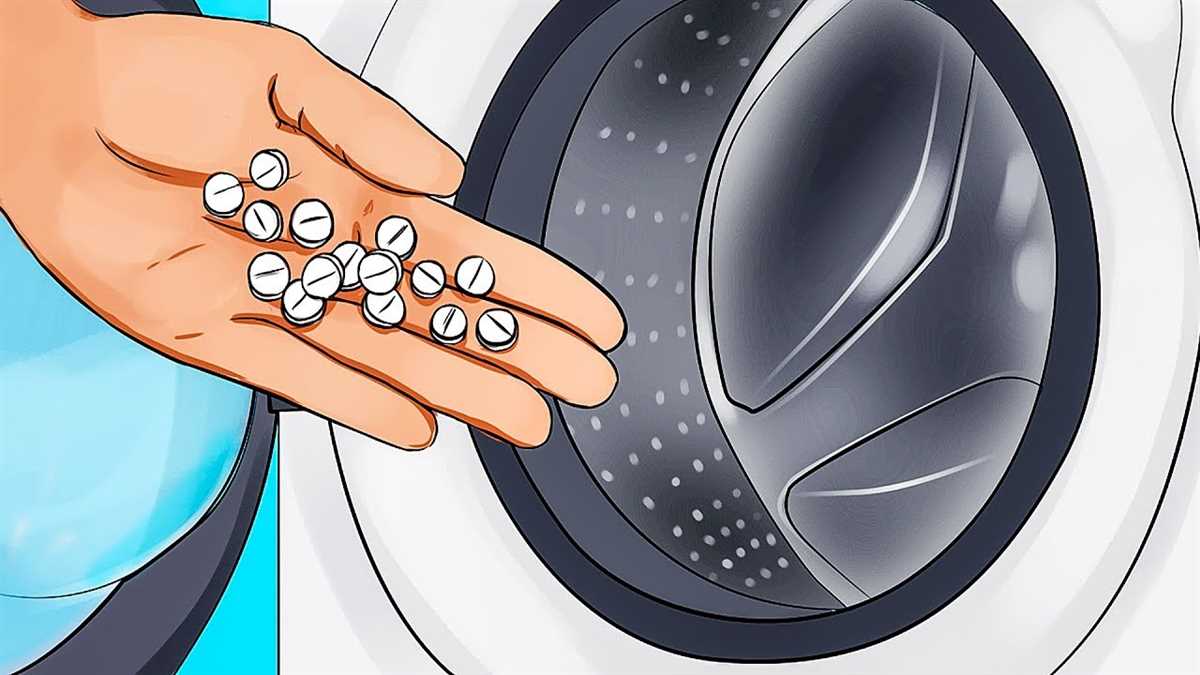
While adding aspirin to the washing machine may have some potential benefits, the evidence is limited and there is a risk of fabric damage or discoloration. It is important to exercise caution when using aspirin as a laundry additive and consider alternative methods that have been proven effective and are safer for your whites.
Effectiveness of Aspirin in Laundry
Aspirin, a common over-the-counter medication, has been suggested as a possible solution for improving the whitening effect on white clothes when added to the washing machine. This practice has gained popularity due to its low cost and availability. However, is there any scientific evidence to support this claim?
Scientific Background
Aspirin, or acetylsalicylic acid, is a nonsteroidal anti-inflammatory drug (NSAID) commonly used to relieve pain and reduce fever. It contains chemical properties that may have an impact on the cleanliness and brightness of white fabrics.
When aspirin comes into contact with water, it undergoes hydrolysis, which results in the release of salicylic acid. Salicylic acid has both exfoliating and bleaching properties, making it a potential candidate for enhancing the whitening effect on whites.
Evidence in Support of Aspirin’s Effectiveness
There is limited scientific research specifically investigating the effectiveness of aspirin in laundry. However, anecdotal evidence suggests that adding aspirin to the washing machine can help remove stains and brighten white clothes.
One possible explanation for this effect is the ability of salicylic acid to break down substances that cause yellowing or discoloration on white fabrics, such as sweat or certain types of stains. Salicylic acid may act as a mild bleaching agent, helping to restore the brightness of white clothes.
Practical Application
To test the effectiveness of aspirin in laundry, you can try adding a few crushed aspirin tablets to your next load of whites. Make sure to follow the dosage instructions on the aspirin package and use caution when handling and measuring the tablets.
Remember, it is always important to consider the manufacturer’s instructions for your specific washing machine and clothing items. Some fabrics may be more sensitive to aspirin and could be damaged by its use. Always test a small, inconspicuous area of the garment before applying any treatment to the entire item.
Additionally, it is worth noting that there are commercially available laundry products specifically designed to whiten and brighten white clothes. These products have undergone testing for safety and effectiveness, making them a reliable choice for achieving desired laundry results.
Conclusion
While there is limited scientific evidence specifically addressing the effectiveness of aspirin in laundry, anecdotal evidence suggests that it may have a positive impact on the whitening effect of whites. However, it is important to approach this practice with caution and follow manufacturer’s instructions, as some fabrics may be sensitive to aspirin. Consider using commercially available laundry products for reliable and tested results.
How Does Aspirin Work on Clothes?
Aspirin, a commonly used medication, contains a compound called acetylsalicylic acid. This acid is known for its ability to remove stains and brighten colors. When added to the washing machine with clothes, aspirin works in several ways to improve the whitening effect on whites.
1. Stain Removal:
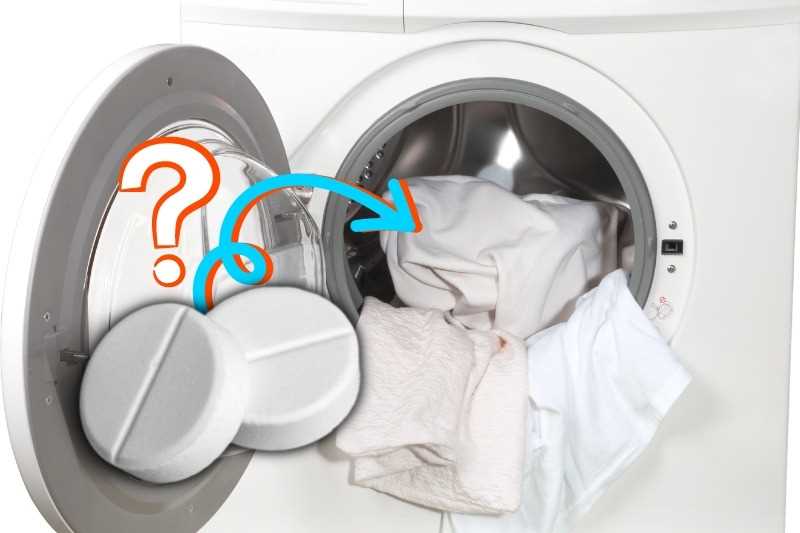
The acetylsalicylic acid in aspirin acts as a powerful stain remover. It can break down and dissolve stains on fabrics, including yellowing or graying that may occur on white clothes over time. Aspirin is particularly effective against sweat stains, grass stains, and certain food stains.
2. Brightening Effect:
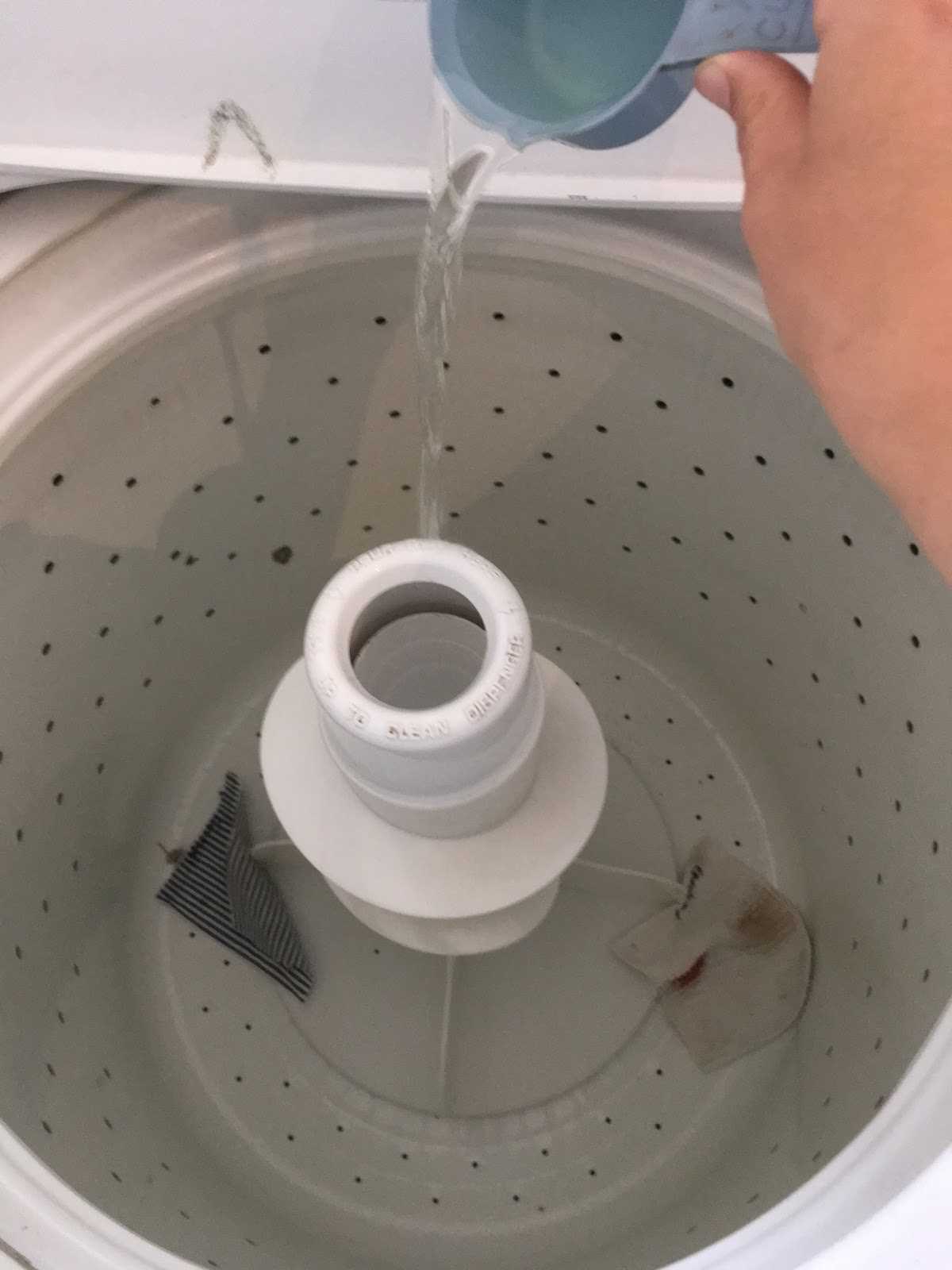
Aspirin can also give clothes a brighter appearance. It helps remove any residues or impurities that may be dulling the fabric, allowing the natural brightness of the material to shine through. Clothes treated with aspirin often appear whiter and crisper.
3. pH Balancing:
The acidic nature of acetylsalicylic acid helps balance the pH level of the water in the washing machine. This can enhance the effectiveness of laundry detergent, allowing it to work more efficiently in removing dirt and grime from clothes. A balanced pH level also helps prevent yellowing or discoloration of fabrics.
4. Softening Fabric:
In addition to stain removal and brightening, aspirin can help soften fabric. It can break down any residue or buildup that may be causing clothes to feel stiff or rough. As a result, clothes treated with aspirin tend to have a softer and smoother texture.
5. Antibacterial Properties:
Aspirin possesses antibacterial properties that can help eliminate odor-causing bacteria on clothes. By reducing bacterial growth, aspirin can help keep clothes fresher and odor-free for longer periods. This is especially beneficial for workout clothes or garments that tend to trap odors.
Overall, adding aspirin to the washing machine can help improve the whitening effect on whites by removing stains, brightening colors, balancing pH levels, softening fabrics, and eliminating bacteria. It is a cost-effective and easily accessible method to enhance the appearance and cleanliness of clothes.
Proper Usage of Aspirin in Laundry
Introduction
Aspirin is a widely-used medication known for its ability to relieve pain and reduce inflammation. However, it also has other surprising uses, including its potential to improve the whitening effect on whites when added to the washing machine. This article aims to provide a guide on the proper usage of aspirin in laundry to obtain the best results.
Materials Needed
- Washing machine
- Whites to wash
- Aspirin tablets
- Laundry detergent
- Hot water
Instructions
- Sort and pretreat the whites: Prior to washing the whites, it is essential to sort them by color and pretreat any stains or spots using a suitable stain remover.
- Check the garment care labels: Ensure that the whites you plan to wash can withstand hot water and the use of aspirin. Some delicate fabrics may be incompatible.
- Prepare the washing machine: Select an appropriate water temperature setting for your whites. Hot water is usually recommended to maximize the whitening effect.
- Add laundry detergent: Add the recommended amount of laundry detergent according to the manufacturer’s instructions.
- Add aspirin tablets: Crush several aspirin tablets into a fine powder. The number of tablets to use depends on the load size and the desired whitening effect. A general guideline is to use 2-3 tablets for a regular-sized load, but you can adjust accordingly. Sprinkle the aspirin powder directly into the washing machine drum.
- Load the whites: Place the sorted and pretreated whites into the washing machine.
- Start the wash cycle: Close the washing machine lid or door and start the wash cycle according to the machine’s instructions.
- Monitor and complete the wash: Keep an eye on the washing machine throughout the cycle, ensuring that it progresses without any issues. Once the cycle is complete, promptly remove the whites from the machine.
- Inspect and assess: Examine the whites to determine if the desired whitening effect has been achieved. If not, you can repeat the process or consider alternative whitening methods.
Additional Tips
- Test on a small area: Before using aspirin on a larger batch of whites, it is advisable to test its effect on a small, inconspicuous area of one garment to avoid any unwanted reactions.
- Vary the number of tablets: If you find that the whitening effect is too strong or too weak, experiment with adjusting the number of aspirin tablets used.
- Regular maintenance: Aspirin can be occasionally utilized to maintain the whiteness of whites even without heavy staining. Quarterly or biannual treatments might be beneficial.
Conclusion
Adding aspirin to the washing machine during the laundering process may enhance the whitening effect on whites. By following the proper usage instructions outlined in this guide, you can potentially achieve brighter and whiter clothes. Remember to always check garment care labels and perform a small test before proceeding with the entire load. Enjoy having cleaner and fresher-looking whites!
Alternative Methods for Whitening Clothes
While using aspirin in the washing machine may improve the whitening effect on whites, there are several other alternative methods that you can try to achieve the same result:
1. Lemon juice
- Mix equal parts of lemon juice and water.
- Soak your whites in the solution for about 30 minutes.
- Wash the clothes as usual.
- Lemon juice acts as a natural bleaching agent and may help brighten whites.
2. Baking soda
- Add 1/2 cup of baking soda to your regular laundry detergent.
- Wash your whites as usual.
- Baking soda can help remove stains and odors, making your whites appear brighter.
3. Hydrogen peroxide
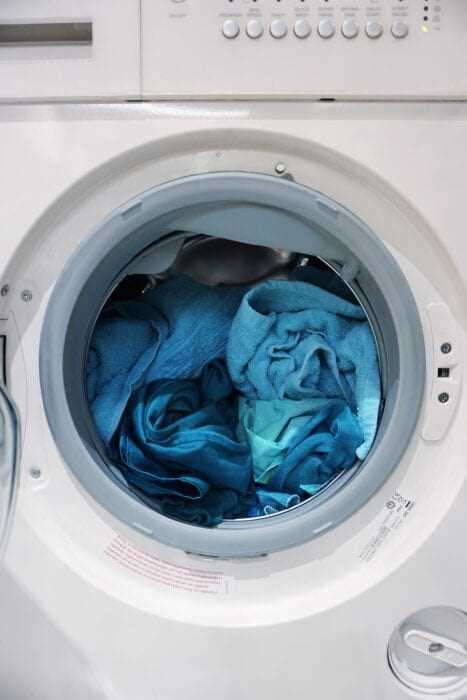
- Dilute hydrogen peroxide with water in a 1:1 ratio.
- Soak your whites in the solution for 20-30 minutes.
- Wash the clothes as usual.
- Hydrogen peroxide can act as a mild bleach and may help whiten your clothes.
4. Vinegar
- Add 1/2 cup of white vinegar to your laundry load.
- Wash your whites as usual.
- Vinegar can help remove residues and brighten your clothes.
5. Sun drying
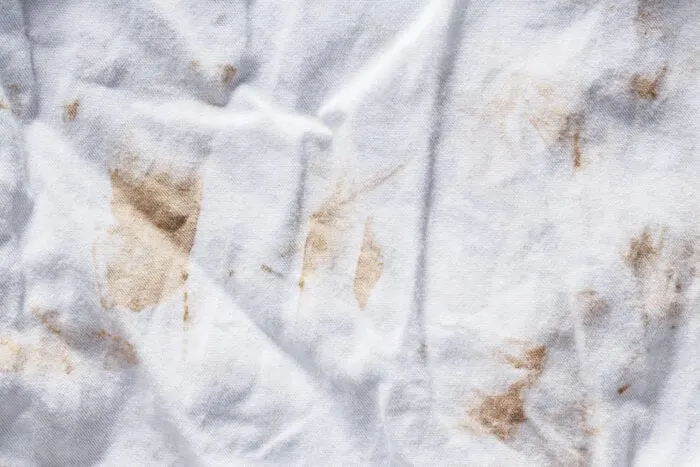
- Hang your whites outside on a sunny day.
- The sun’s UV rays can naturally bleach and whiten your clothes.
- Make sure to follow the care instructions on your clothing labels to avoid damage.
These alternative methods can be used in conjunction with your regular laundry routine to help whiten and brighten your whites without the use of aspirin.
Expert Recommendations on Aspirin for Laundry
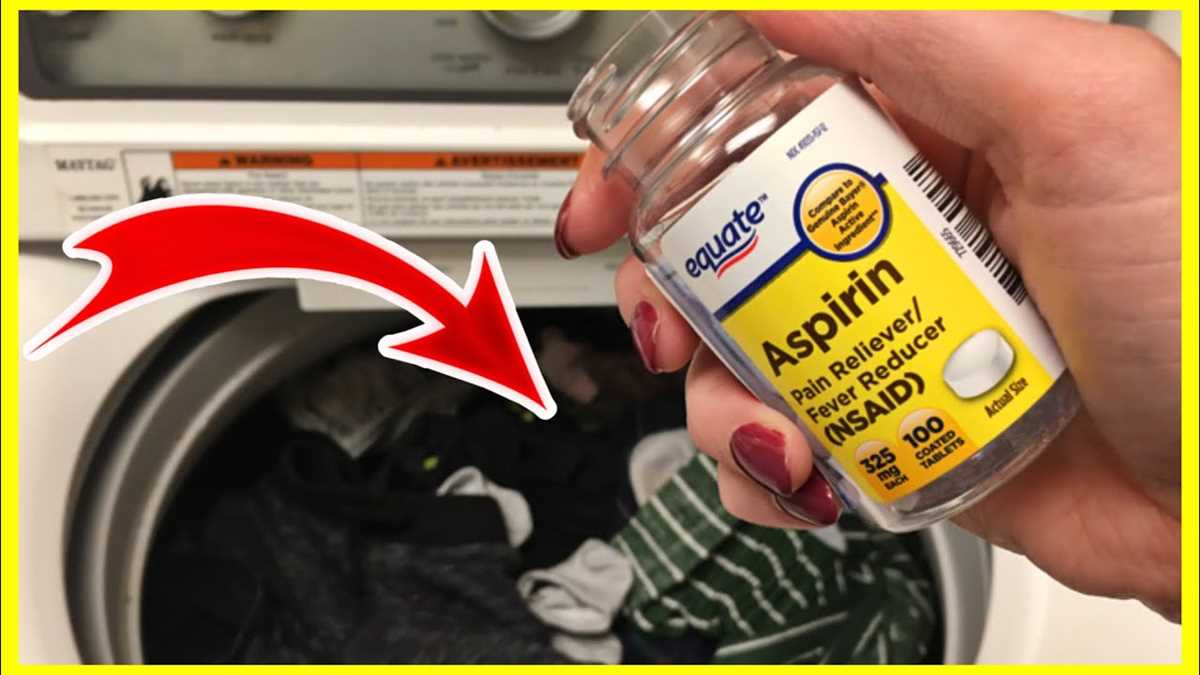
Adding aspirin to the washing machine has been a popular home remedy for improving the whitening effect on whites. While some people have claimed success with this method, it is important to note that the effectiveness of aspirin for laundry is still a subject of debate among experts.
Here are the expert recommendations on using aspirin for laundry:
- Use caution: Before trying the aspirin method, it is recommended to check the care instructions for your clothing. Some fabrics may not be suitable for this treatment and could be damaged.
- Pre-treat stains: Aspirin may have mild stain-removing properties. Crush a few tablets and mix them with water to create a paste. Apply the paste to the stained areas of your clothes and let it sit for a few minutes before washing.
- Use mild detergent: When using aspirin for laundry, it is best to choose a mild detergent. Harsh detergents may interact negatively with the aspirin, leading to potential garment damage.
- Follow instructions: If you decide to add aspirin to your washing machine, carefully read the instructions on the aspirin bottle. The recommended dosage may vary depending on the brand and formulation.
- Test on a small area: Before treating a full load of laundry with aspirin, it is advisable to test the method on a small, inconspicuous area of a garment. This way, you can determine if the aspirin causes any adverse effects on the fabric.
Keep in mind that aspirin is not a guaranteed solution for whitening clothes, and other factors such as water quality, detergent choice, and fabric type can also affect the outcome. If you are looking for professional-grade whitening, it may be best to consult a laundry expert or consider alternative laundry products specifically designed for whitening purposes.
FAQ
Does adding aspirin to the washing machine really make white clothes whiter?
Yes, adding aspirin to the washing machine can help make white clothes whiter. Aspirin contains a chemical compound called acetyl salicylic acid, which can act as a bleaching agent and remove stains from white fabrics.
How does aspirin work to whiten white clothes?
Aspirin contains acetyl salicylic acid, which has bleaching properties. When added to the washing machine, the acetyl salicylic acid breaks down and releases hydrogen peroxide, a powerful stain remover and whitening agent. This helps to remove any yellowing or stains on white clothes, making them appear brighter and whiter.
What is the recommended dosage of aspirin to add to the washing machine?
The recommended dosage of aspirin to add to the washing machine is one to two tablets per load of white laundry. You can simply drop the tablets into the washing machine along with the detergent. However, it is important to note that too much aspirin can potentially damage delicate fabrics, so it is best to follow the instructions on the packaging or consult the manufacturer’s guidelines.
Are there any risks or potential drawbacks to using aspirin in the washing machine?
While adding aspirin to the washing machine can help whiten white clothes, there are some potential risks and drawbacks to consider. Firstly, aspirin can cause damage to certain fabrics, especially delicate or sensitive materials. It is important to test a small area of the fabric before adding aspirin to the entire load. Additionally, aspirin may not be effective on all types of stains, so it may not always produce the desired whitening effect. It is always best to follow the manufacturer’s guidelines and use aspirin in moderation.











